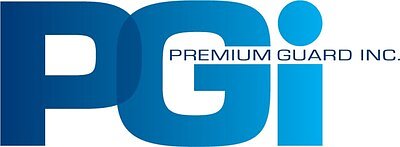
PGI Drives Automotive Air Quality Forward with Diagnostic Tech & Private Label Power
Premium Guard Inc. is reshaping the automotive aftermarket with data-driven diagnostics, a robust private label business, and a commitment to cleaner in-cabin air. Can this innovative approach redefine vehicle maintenance?
PGI Drives Automotive Air Quality Forward with Diagnostic Tech & Private Label Power
LAS VEGAS, NV – November 5, 2025 – Beyond the gleaming show floor at the Automotive Aftermarket Products Expo (AAPEX), Premium Guard Inc. (PGI) is quietly asserting itself as a driving force in the evolution of vehicle maintenance. The Memphis-based manufacturer isn't just building filters; it's building a future where data-driven diagnostics and flexible manufacturing partnerships redefine how cars are serviced and how drivers breathe.
PGI is showcasing its latest innovations at AAPEX, including the official relaunch of its Premium Guard filter line and, more significantly, the launch of ViAQ – a first-of-its-kind non-invasive diagnostic tool for cabin air filters. The tool, recently recognized with a 2025 Motor Top 20 Award, is gaining attention for its potential to move beyond time-based filter replacement and towards a more precise, data-driven approach.
Diagnosing a Need: ViAQ & the Future of Cabin Air Quality
For years, cabin air filter replacement has been largely a matter of mileage or time intervals. ViAQ aims to change that. The handheld device measures in-vehicle air quality in real-time, evaluating filter efficiency and remaining life. The result? Technicians and consumers receive actionable insights, moving beyond guesswork and towards preventative maintenance.
“We saw a gap in the market for a truly diagnostic tool for cabin air filters,” explains a company representative. “The focus has always been on when to replace, not if it needs replacing. ViAQ provides the data to answer that question accurately.”
This shift is particularly relevant as concerns about in-vehicle air quality grow. Modern vehicles are sealed environments, and cabin air filters play a crucial role in removing pollutants, allergens, and particulate matter. As cities grapple with increasing air pollution and drivers spend more time in their cars, the importance of a clean cabin environment is becoming increasingly apparent.
“The health implications are significant,” notes an industry analyst. “Consumers are becoming more aware of the air they breathe, and they’re demanding solutions that prioritize their well-being. ViAQ positions PGI at the forefront of that trend.”
Beyond Branding: The Power of Private Label
While ViAQ captures the spotlight, PGI's strength lies in a less visible but equally impactful strategy: a robust private label business. Accounting for roughly 40% of its revenue, PGI partners with major automotive retailers and quick lube chains, providing custom-branded filtration products.
“We’ve deliberately built a business model that complements the existing aftermarket ecosystem,” a PGI source details. “Instead of competing directly with established brands, we offer a flexible manufacturing solution that allows our partners to differentiate themselves.”
This strategy has proven particularly successful in an increasingly competitive market. By offering custom branding, packaging, and filter specifications, PGI enables its partners to build brand loyalty and capture market share. The company’s investment in advanced manufacturing capabilities and a dedicated private label team has further solidified its position as a preferred supplier.
“The private label model is a win-win for everyone involved,” observes a supply chain expert. “Retailers can offer exclusive products without the investment in manufacturing infrastructure, and PGI benefits from a stable revenue stream and long-term partnerships.”
Navigating a Changing Market
PGI’s success isn't without its challenges. The automotive aftermarket is undergoing a period of rapid transformation, driven by the rise of electric vehicles (EVs) and the increasing complexity of vehicle technology. EVs, for instance, typically have different filtration needs than internal combustion engine (ICE) vehicles.
However, PGI appears well-positioned to adapt. The company is investing in research and development to expand its product portfolio to include filters specifically designed for EVs and hybrid vehicles. It’s also exploring opportunities to leverage data analytics and connectivity to offer value-added services, such as predictive maintenance and remote diagnostics.
“We recognize that the automotive landscape is changing rapidly,” states a PGI representative. “We’re committed to staying ahead of the curve by investing in innovation and building strong partnerships.”
The Road Ahead
PGI’s strategy represents a compelling blueprint for success in the evolving automotive aftermarket. By combining cutting-edge diagnostic technology with a flexible manufacturing model, the company is not only addressing current market needs but also positioning itself for long-term growth.
Whether ViAQ will revolutionize vehicle maintenance remains to be seen. However, PGI's commitment to innovation, combined with its robust private label business, suggests that this Memphis-based manufacturer is poised to be a driving force in the future of automotive air quality and beyond. The company’s focus on data-driven solutions and customer-centric partnerships could serve as a model for other players in the industry as they navigate the challenges and opportunities of a rapidly changing market.
